Axis of ill will made bold by our weakness
The West is facing a dual threat; from bad actors externally, and internally from polarisation and demoralisation on a scale unlike anything since the end of the Cold War.
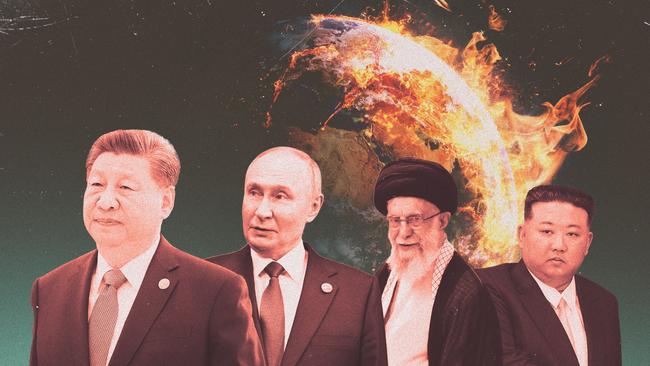
Renowned British historian Niall Ferguson told the first Australian Alliance for Responsible Citizenship conference in Sydney that the axis of authoritarian powers – China, Russia, Iran and North Korea – are now acting in close concert, which makes them much more dangerous.
Events this week demonstrate the case. The US has confirmed North Korea has at least 3000 troops in Russia. They appear to be training with drones, presumably to fight for the Russians in Ukraine. Their presence marks a clear stage in the evolution to full alliance among the authoritarian axis.
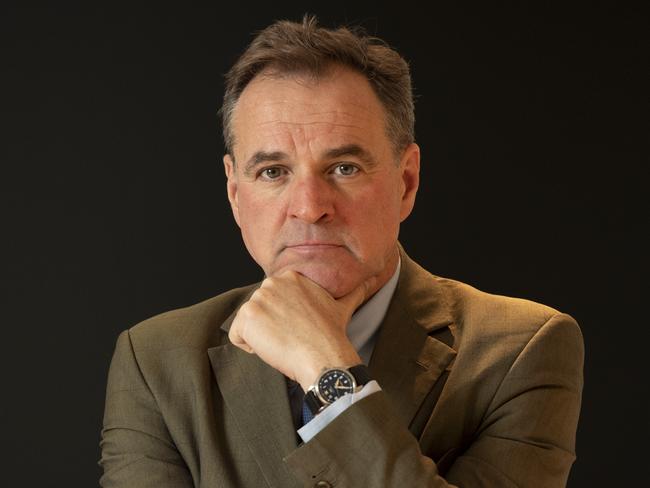
Australia’s Foreign Minister, Penny Wong, commented: “This is a deeply concerning development to see not only Russia continue its illegal and immoral war, but to see a state such as North Korea be invited by President Putin to join or support this illegal war.”
Similarly, US Deputy Secretary of State Kurt Campbell last month for the first time reported that China is supplying Russia with direct components of its military effort in Ukraine: “These are not dual-use capabilities. These are component pieces of a very substantial effort on the part of China to help sustain, build and diversify various elements of the Russian war machine.”
This support goes across the axis. North Korea sends missiles to Russia. Iran sells Russia drones. Moscow assists Beijing with hi-tech weapons technology, including submarine, missile and aeronautic systems. All four connive to frustrate Western sanctions.
ARC has been driven by former deputy prime minister John Anderson, working closely with Canadian author Jordan Peterson and British think-tank leader Baroness Philippa Stroud.
Anderson and Stroud, in a joint newspaper article, asserted: “The West is weak: culturally we are witnessing the deconstruction of the value system that laid the foundations of our freedom, prosperity and, in Australia, our egalitarianism.”
British Christian author Os Guinness, a leading ARC light, argues the West is now in a “civilisational moment”, where it’s in danger from external enemies, but also in danger of fatally losing touch with the basis of its own culture, inheritance and social operating system.
ARC is perhaps unique in trying to deal with both the external and internal challenges, trying to integrate an analysis and synthesise a cultural response. While acknowledging the gravity of the threats, it also taps the reservoir of strength and resilience in the Western tradition, seeking to chart a way forward across big policy questions.
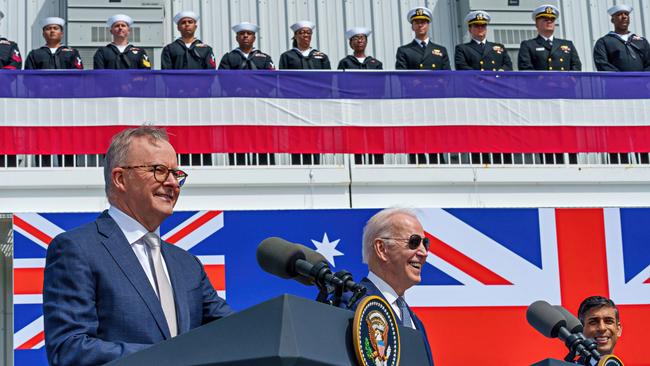
Ferguson was the international star among the 700 attendees at Sydney ARC. His analysis of the crisis links the external and internal threats. Externally, our foes are stronger than they’ve ever been, more united and dangerous. They’re also, at the leadership level at least, full of passionate self-belief and conviction.
They’ve all moved to wartime economies. We, by contrast, have seldom been more divided internally. Many of our institutions have lost faith in their mission, and the society they serve. And we’re not doing anything significant to meet the external challenge.
Consider. This week the Albanese government announced it would spend $7bn buying new, powerful air defence missiles, the SM-2 and SM-6. These are the most advanced missiles we will operate. They are air defence missiles, but the SM-6 can also strike ships.
Pretty impressive, huh? Well, not so much, when you look at the fine print. It turns out the $7bn is over 10 years. Whenever the Albanese government announces seemingly big defence expenditure, the number is bulked up by being spread over 10 years. Typically the expenditure increase doesn’t kick in seriously until the first year of a notional third Labor government.
Defence Industry Minister Pat Conroy, who made the announcement, typically didn’t announce a quantity, schedule of delivery or even a timetable for disbursing the money. Within our pitifully small, antique, undergunned and generally impotent navy, the only ships that can use the new missiles are our three Air Warfare Destroyers.
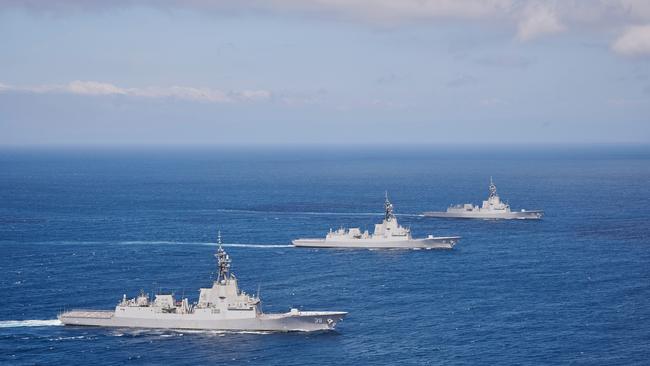
The AWDs are quite good ships. But they’re second-, perhaps even third-tier combat ships, with only half the firepower of an American Arleigh-Burke destroyer, or of modern Chinese destroyers, or those of many other nations. And there’s only three of them. Three! That’s it. At any one time we can put precisely one to sea.
The new missiles will also go on the Hunter-class frigates. We’re going to build six of these. But the first doesn’t come into service, if we’re lucky, until 2032 or 2033. The Albanese government has implemented no serious increase in defence spending in a relevant time frame, and no serious increase in defence capabilities.
It’s singing jingles in la-la land and calling it defence.
Ferguson warned of this lazy performance across the Anglophone world: “We confront a really serious external threat. I don’t think there’s sufficient recognition of how dangerous the axis of ill will is. That axis is wreaking havoc in Ukraine, it’s wreaking havoc in Israel and it may well wreak havoc in Taiwan.
“We face one of the biggest external threats since World War II. AUKUS exists but neither the US, the UK nor Australia is yet making sufficient effort to deter the axis of ill will.”
Ferguson makes a critical analytical point, which the Albanese government refuses to confront: “Much of the discussion about AUKUS is on the wrong time frame.” In other words, the Albanese government, like other Western governments, talks big but delivers very little.
Ferguson continued: “It’s no accident that (CIA director) Bill Burns twice last year said that China’s Xi Jinping had told his military to be ready (for war over Taiwan) by 2027.” Ferguson thinks the next US presidential term will likely face military engagement over Taiwan.
“We need urgently to improve our deterrence in the Taiwan Strait, and in the South China Sea, and we need to recognise the extent to which the hostile powers are acting together. We’re no longer dealing with separate regional conflicts. We face a global challenge.”
One of the almost psychotic paradoxes of the present moment globally is that the four authoritarian allies are each enslaved to monstrous and grotesque ideologies, yet the leadership of each nation believes in them passionately and mobilises great national power behind these ideologies.
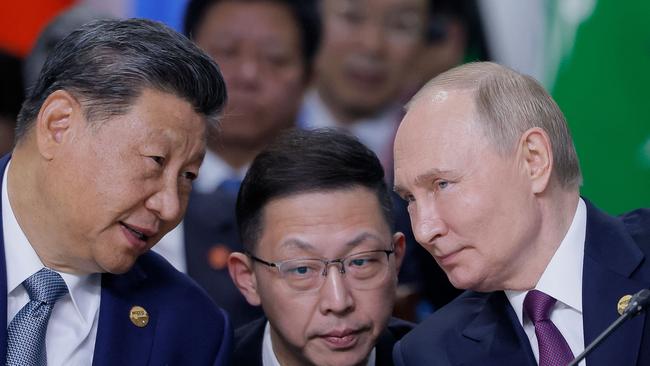
In Western societies like Australia, we inherit the most humane, decent and generous political cultures the world has known, yet tear each other apart with internal conflict, and many regard our history and legacy as uniquely evil.
In reality, every national story contains good and bad, but in the West the arc of time has bent towards human rights, provision for the poor, opportunity for all. It’s in the irrational demonisation of this heritage that we now enfeeble ourselves.
Each of the four authoritarian nations follows a system that subjugates human beings to the ideological purposes of the state, and that sees itself inherently, of its essence, in conflict with the West.
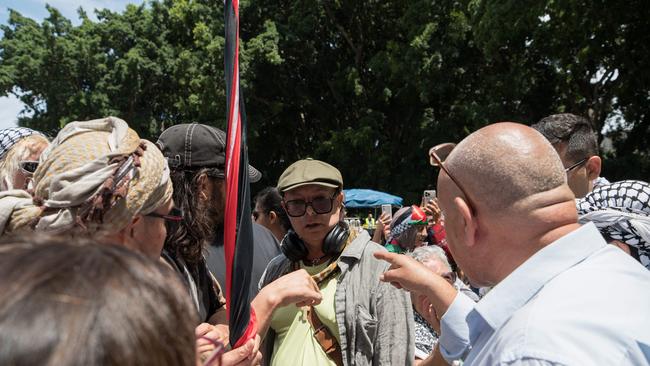
Kevin Rudd’s brilliant new book, On Xi Jinping: How Xi’s Marxist Nationalism is Shaping China and the World, makes clear that for both Xi, and the Chinese Communist Party, Marxist-Leninist ideology comes before everything else. Rudd analyses an important 2018 speech in which Xi praised Karl Marx as “the greatest thinker in human history”. Xi also argued “that Marxist theory remained universally applicable, not just to China”.
Rudd writes that Xi has a Manichean worldview: China good, the West bad. Rudd quotes the CCP’s 2021 “historical resolution”: “Marxism has brought to light the laws governing the development of human society. It is a scientific truth for understanding and shaping the world.”
The resolution is confident China’s development has “significantly shifted the worldwide historical evolution of and contest between the two different ideologies and social systems of socialism and capitalism in a way that favours socialism”.
Xi’s renewed emphasis on ideology and Marxist/Leninist practice has significantly stalled the Chinese economy, but Beijing has invested massively in military capabilities and back-up reserves of critical supplies.
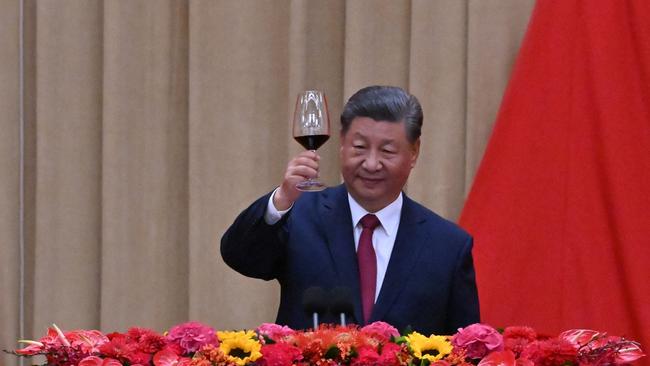
The North Korean ideology of “juche”, or self-reliance, has impoverished and half-starved the beleaguered population. But the Kim dynasty, into its third generation of rulers, has already lasted an impressive 75 years. It’s a formidable historical dynasty. With its nuclear weapons developments and intimate role in the authoritarian axis, it has never been more secure.
The ayatollahs who rule Iran believe fervently in their extreme Islamist ideology. From the earliest days of the 1979 revolution they denounced the US as “the Great Satan” and Israel as “the little Satan”. They’ve never lost conviction.
Even Russia’s Vladimir Putin has his ideology – extreme, paranoid Russian nationalism, given its fullest expression in the mad Eurasianist books of Aleksandr Dugin. Putin has outlined much of this belief in his own lengthy essays and soliloquies on why Ukraine is really Russia.
None of this ever exercises our symbol-wielding class. But their hostility to everything about our own history, tradition, politics, and nation, is pathological.
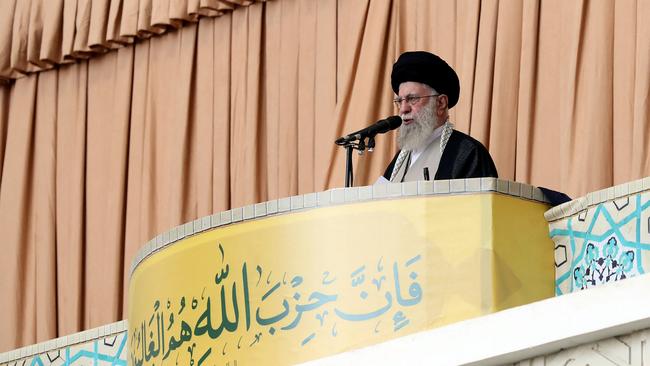
Ferguson elucidated one connection between the domestic and the external when he remarked how the US now resembles the late Soviet Union, with pervasive cynicism and loss of belief, zero budget discipline, and rising depths of despair. It’s suggestive, rather than a clear parallel.
All this would be manageable if our internal morale were strong. The collapse of will, purpose, strength and clarity is evident in a thousand seemingly disconnected episodes.
Take one extraordinary, depressing case from last week. Joe de Bruyn, 40 years head of the shop assistants’ union and many years a member of the ALP’s national executive, is a Catholic with orthodox Catholic views that follow Church teaching.
He was awarded an honorary PhD from the Australian Catholic University and in his address recounted, in modest, unemotional language, his opposition to abortion, in line with Catholic teaching, and his opposition to same-sex marriage, also in line with Catholic teaching.
Here was a distinguished, decent Catholic layman, expressing support for Catholic teaching as espoused by Pope Francis and Australian bishops.
At the first mention of abortion the majority of students and faculty walked out.
Next day the university offered counselling to any student or staff distressed by what it described as de Bruyn’s controversial speech. It also offered students a refund of the graduation fee. The vice-chancellor, Professor Zlatko Skrbis, wrote to staff saying the university leadership had asked de Bruyn to reconsider delivering such a speech, and, bizarrely, that it “did not meet the standards we strive for”.
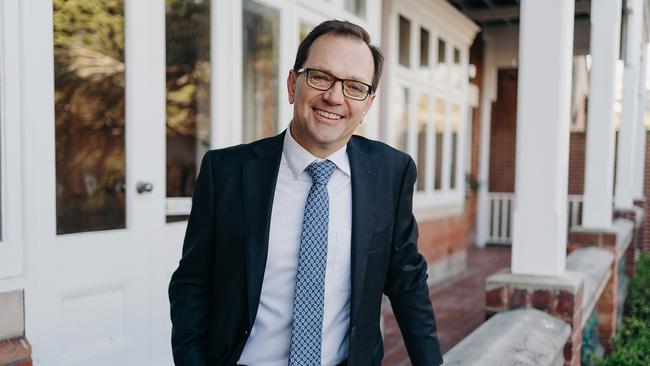
This may seem a trivial punctuation point in the larger grammar of madness, but in its way it’s a telling sign of cultural exhaustion and institutional disarray. An institution claiming to be a Catholic university is embarrassed by Catholic doctrine, apologises for its public expression, and offers counselling for the trauma of students having to hear it.
Has the world gone completely insane?
Tony Abbott, a Catholic former prime minister, told me: “If a Catholic university can’t even listen respectfully to orthodox Catholic teaching it’s completely lost its sense of purpose. A Catholic university which seeks to censure orthodox Catholic teaching makes you wonder what is the point of the institution. You have to ask what the vice-chancellor is doing in his job.”
I asked George Weigel, famed biographer of Pope John Paul II, and perhaps today’s leading Catholic intellectual, for his reaction. He said: “The Catholic Church invented what we know as the university during the High Middle Ages – and invented it as a place of robust debate within the bounds of civility. If the Australian Catholic University is to be that kind of place, its leaders will have to regain their nerve and stop treating petulant, misbehaving students like delicate snowflakes. And the cancel-culture faculty who walked out of Mr de Bruyn’s talk will have to grow up.”
Melbourne’s Catholic Archbishop, Peter Comensoli, issued a statement in which he said, inter alia “The unborn … all those on the margins or who have no voice, are owed the upholding of their lives and dignity”. That seems to agree with de Bruyn in substance. He also called for “civil engagement”, which seems to agree with de Bruyn in style, for de Bruyn was certainly not the uncivil party.
The stupidity of the ill-mannered students is not the big issue. Rather, it’s that the leadership of a Catholic university put no importance on proclaiming, or even hearing, the teachings of their Church, instead showing every sign of being cowed by a run-of-the-mill display of secular zeitgeist intolerance.
If that’s the courage displayed by an organisation charged with upholding transcendent values, it can be read as a shocking sign of the wider cultural malaise.
The university administration has failed badly. But the university is in some measure answerable to Catholic bishops. The bishops need to address this. If even Catholic institutions are ashamed of Catholic doctrine, that’s an appalling sign of the struts of civilisation simply falling apart.
John Anderson told me that ARC is a “one-minute-to-midnight attempt to restore the primacy of rational and evidence-based thinking”. As Os Guinness put it, “it is plain the West has lost faith and confidence in itself”. But we’ve reached a turning point, not a conclusion: “Renewal is as possible as decline.”
ARC comprehends the crisis, strives for renewal. It has a lot of work ahead.
Greg Sheridan spoke at the Sydney ARC conference.


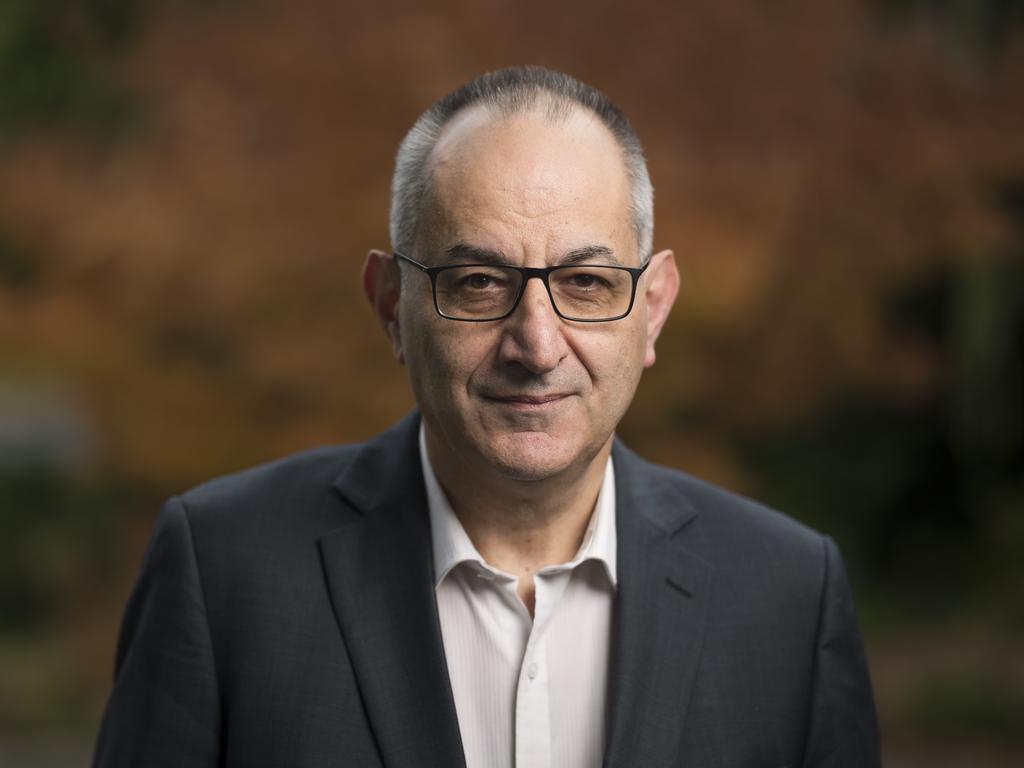
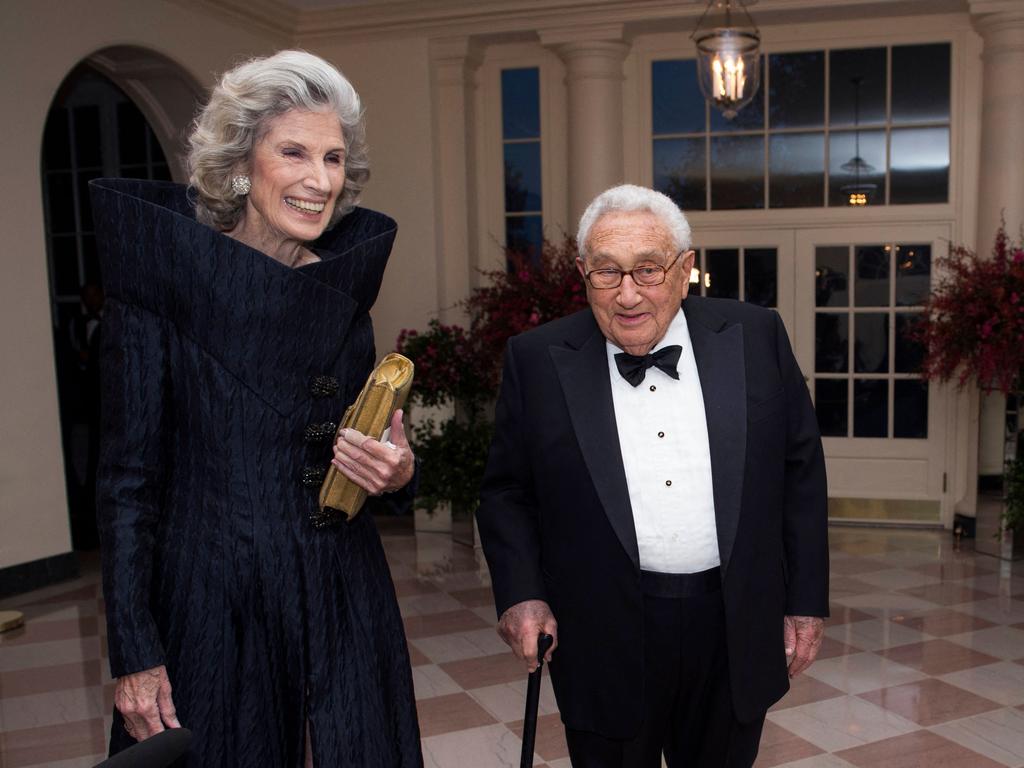


Australia is facing external threat plus internal polarisation and demoralisation on a scale unlike anything since the end of the Cold War, perhaps since World War II. And we’re not coping.